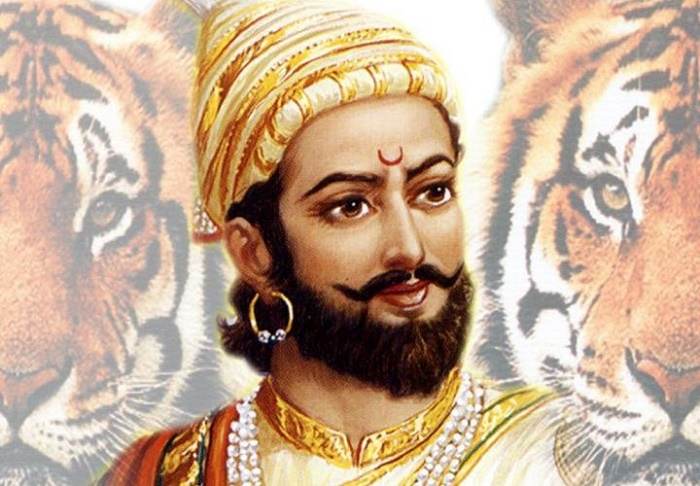Essay on Chhatrapati Shivaji in English: Chhatrapati Shivaji was the founder of the Maratha Empire. Born on 10 April 1627 in the fort of Shivneri, Shivaji had unwavering faith in Hinduism. He gave full priority to humanity and human values. He was a true patriot.
Also Read: Short Essay Topics
Essay on Chhatrapati Shivaji history in English
Shivaji’s father Shri Shahaji Bhonsle was a big vassal. He was the head of the Maharaja of Bijapur. After the birth of Shivaji, Shahaji got married again and Shivaji’s mother Jijabai came to Poona from Shivneri. His mother Jijabai had a special contribution to the construction of Shivaji’s character.

She was a woman of very religious views, which led to a sense of religious tolerance in Shivaji. He respected all religions in the same manner. At that time India was under the Mughals. He was aghast at the atrocities and discrimination perpetrated by the Mughal rulers on Hindus.
Hindus had to pay a special tax due to their religion which was called the Jizya tax. It was not in his nature to tolerate injustice on his own soil, seeing his own people.
Hence, he resolved to overthrow the Mughals. To fulfill this purpose, he formed his army. He found a new way to attack the huge Mughal army. He prepared his troops for guerrilla (guerilla) war which would cause the least harm during the war.
Shivaji was a master of warfare. He started his conquests by conquering some small forts and some territories of Bijapur state. The king of Bijapur was terrorized by his growing influence. He made several attempts to capture Shivaji but was unsuccessful.
Finally, he made a diplomatic move and sent his army chief Afzal Khan to Shivaji for a personal meeting. His purpose was to eliminate Shivaji by deceit, but Shivaji understood his trick. He killed Afzal Khan. After this, the army of Bijapur also suffered heavy losses due to which the king of Bijapur had to make a peace treaty with them.
The then Mughal ruler Aurangzeb was frightened by their growing influence. He sent his army chief and several generals to arrest Shivaji, but all of them had to face it. He could not stand in front of Shivaji’s guerrilla technique, eventually, Aurangzeb betrayed him but he could not keep him in captivity for long. With his cleverness, he was able to get out of his captivity.
After leaving Aurangzeb’s captivity, he prepared his army for full war with the Mughal emperor. All the forts on which Aurangzeb had acquired his dominion were again conquered. In 1674, he became the king of Raigad and was duly crowned. Thus Shivaji established ‘Hindu-Pad-Padshahi’ after a long gap.
Chhatrapati Shivaji was a soldier and a heroic warrior. It was his courage, bravery, and sharpness that made him dare to fight against the huge Mughal army too. He personally believed in truth and all human values.
If the enemy’s women were taken captive in the war, it was their command that they are sent back respectfully. They respected all religions. The simplicity and upbringing of Mata Jijabai gave her the character’s tenacity. Indians will never forget their attempt to drive foreigners out of the country.
Essay on Shivaji Maharaj in English Essay 2
Chhatrapati Shivaji Maharaj was born on 19 February 1627 in a Maratha family in Shivneri (Maharashtra). Shivaji’s father was Shahaji and mother Jijabai.
He was an Indian ruler who built the Maratha Empire. He was rich in versatility. He was a brave, intelligent, valiant and compassionate ruler. Shivaji is accepted as a hero and immortal freedom-fighter.
While Shivaji is accused of being anti-Muslim, it is not true that his army had many Muslim heroes and fighters and many Muslim Sardars and Subedars too.
Threse inspiring tales of heroic Shivaji
In fact, the whole struggle of Shivaji was against the bigotry and arrogance which was maintained by rulers like Aurangzeb and those who grew up under his shadow. He was a living symbol and symbol of nationalism. For this reason, along with Maharana Pratap, they are also counted among the patriarchs of the near past.
Mother Jijabai, despite being religious in nature, was a heroic woman in virtue and behavior. For this reason, he raised child Shiva and heard bright stories of Ramayana, Mahabharata and other Indian spirits. Under the patronage of Dada Konadev, he was also proficient in all types of contemporary warfare.
Religious education was also imparted to religion, culture, and politics. In that era, Shivaji became a full-fledged nationalist, kartaviparayana and hard-working warrior by coming in contact with the supreme saint Ramdev.
In childhood, Shivaji used to gather the children of his age to become their leader and play the game of war and win the fort. As soon as he was in his youth, his game became real deeds and he started attacking enemies and winning their fortresses, etc.
As soon as Shivaji asserted his authority over the forts like Purandar and Toran, his name and deeds raged all over the south, the news reaching Agra and Delhi like fire. The Yavan of the tyrannical type and all the rulers who were his assistants, after hearing his name, started to look beside the dead.
Terrorized by Shivaji’s rising glory, when the ruler of Bijapur, Adilshah, could not arrest Shivaji, he arrested Shivaji’s father Shahaji. On discovering it, Shivaji became enraged. He raided his policy and courage, and soon liberated his father from this captivity.
Then the ruler of Bijapur sent Shivaji commander Afzal Khan by ordering Shivaji to get him alive or dead. He created a false drama of brotherhood and reconciliation and wanted to kill Shivaji in the circle of his arms, but he himself was killed due to a cloak hidden in the hands of sensible Shivaji. Due to this, his forces found his commander dead and escaped from there by pressing the tail. It is due to his heroism that he is accepted as an ideal and great nation. Due to this, Chhatrapati Shivaji Maharaj died in Raigad on 3 April 1680 AD after three weeks of illness.



